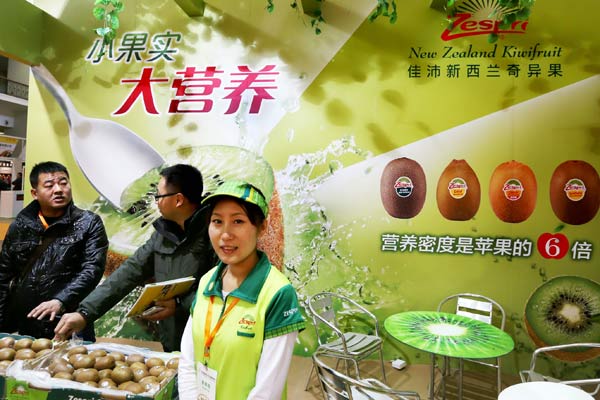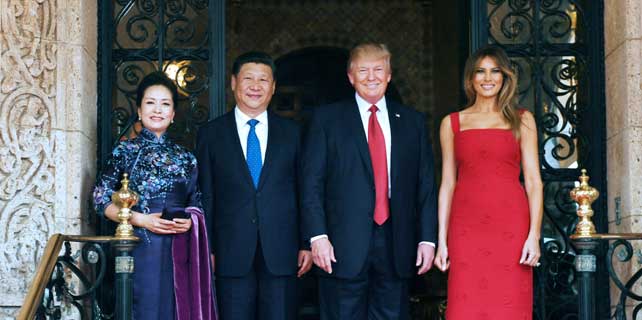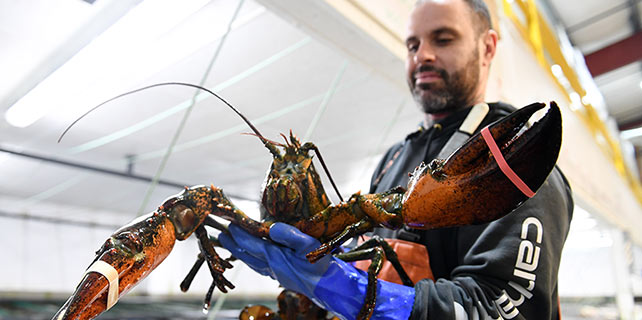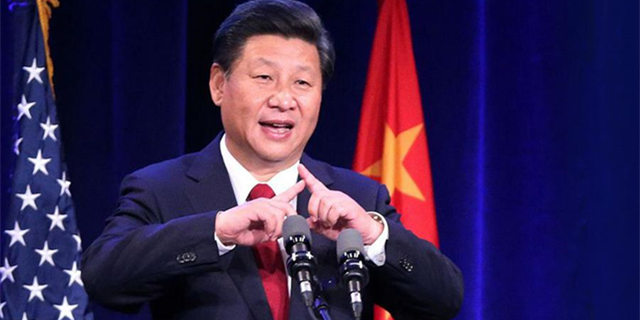Tariff-free kiwifruit juices up China-NZ ties
 |
|
Visitors about to taste New Zealand's kiwifruit at a fruit and vegetable expo. The stall's table-top design portrays the unmistakable pattern of the inside of a cut kiwifruit. [Photo by Leikesi/For China Daily] |
WELLINGTON — The weather is pleasant and cool in northern New Zealand at the end of March. The farms in Tauranga grow vast stretches of a nutrient-rich fruit with soft, green flesh and a unique taste. It is kiwifruit, a signature farm produce of New Zealand. The fruits will later reach thousands of families after being sent to Zespri for sorting and packing.
Despite the name, kiwifruit is not native to New Zealand, but originally comes from China. Seeds were brought across the Pacific to New Zealand in the early 20th century by Isabel Fraser, principal of Wanganui Girls' College, who had been visiting missionary schools in China. They were planted by a local nurseryman and the vines first fruited in 1910. People thought the fruit had a gooseberry flavor and began to call it the "Chinese gooseberry."
The gooseberry's rebranding didn't happen until New Zealand's importer began to promote the market demand of the fruit in the 1950s. It decided to name the fuzzy, brown fruit after the country's furry, brown, flightless national bird.
The erstwhile Chinese gooseberry finds its root a hemisphere away in China and the earliest record of the fruit can be traced back to 2,800 years ago.
The description of the fruit appeared in Shijing, or the Book of Odes, the oldest existing collection of Chinese poetry dating from the 11th to 7th centuries BC. Its original name in Chinese, mihoutao-"macaque fruit"-refers to the monkey's love for it, according to the 16th century Chinese medicine encyclopedia, the Compendium of Materia Medica.
New Zealand's kiwi exports account for one-third of the fruit's global supply. In 2017, China will exceed Japan as the biggest export destination of New Zealand's kiwifruit, said Holly Brown, head of corporate affairs for Zespri China.
Zespri, the sole authorized exporter and marketer for New Zealand kiwifruit, has been gradually recognized by Chinese middle-class families. Sales to China now hit 80,000 tons, accounting for 18 percent of Zespri's global sales. In 1999, its sales to China only accounted for 2 percent. The lowering of tariffs is one of the major reason why exports to China have increased remarkably in recent years.
In April 2008, China and New Zealand signed a free trade agreement. According to the FTA, the first that China signed with a developed country, all goods exported from China to New Zealand became tariff-free on Jan 1, 2016, while tariff on most New Zealand exports to China will be eliminated before Jan 1, 2019.
The FTA has created mutually beneficial concessions in the trade of goods, services and investment, including lowering of tariffs for fruits.
For example, on kiwifruit, China started to gradually lower its 20 percent tariff since 2008 at a rate of about 2 percent each year, before it became tariff-free in 2016.
Ultimately, it's the consumers, farmers and companies of the two countries that benefit from the FTA.
"Located in different hemispheres, New Zealand and China harvest kiwis in opposite seasons. The quality and supply of New Zealand kiwis are stable. They taste delicious, thus are quite popular with customers," a fresh product manager in Beijing Hualian supermarket told Xinhua.
According to statistics from the fresh products department of Jingdong or JD, a leading e-commerce operator in China, Zespri's kiwis are especially favored in China by middle-class families in big cities, women and mothers.
On JD, grown-in-China kiwis, mostly from the northwest province of Shaanxi, are sold just as well as Zespri's.
However, instead of being rivals, Chinese and New Zealand's kiwis are complementary to each other, said Brown of Zespri.
The company is currently in a three-year agreement with kiwi orchards in Shaanxi to develop better kiwi breeds; it's a long-term strategy to satisfy the expanding Chinese market, Brown told Xinhua.






















